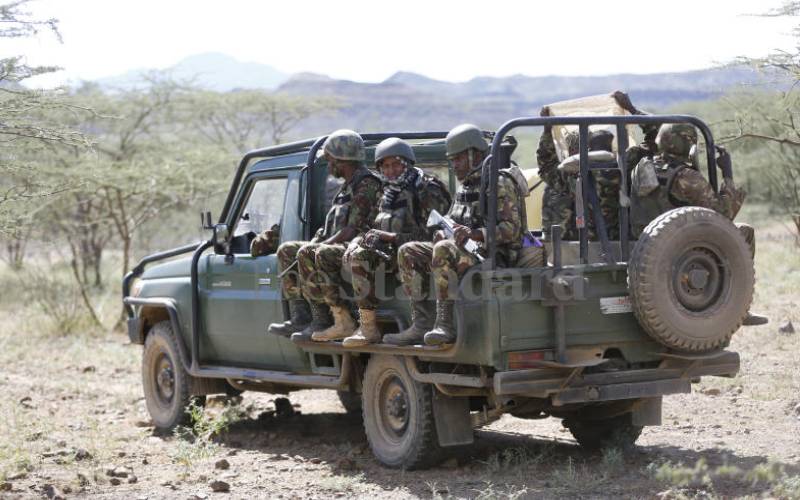×
The Standard e-Paper
Fearless, Trusted News

Military officers at Kapau in Tiaty, Baringo county. [Kipsang Joseph,Standard]
On January 17, 2021, the deputy head of operations at the GSU Emadau Tebakol fell to a bandit’s bullet. The rampage that had been reported in Kapedo and the larger Tiaty had hit rock bottom.